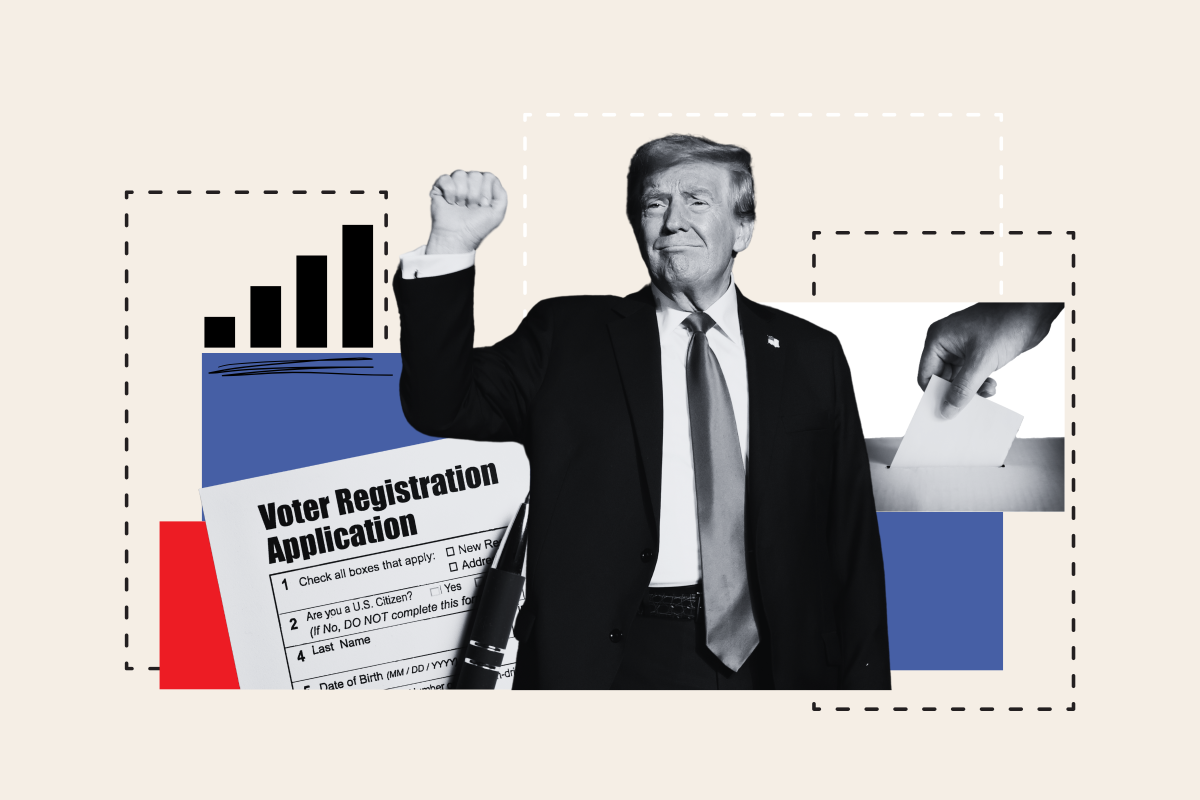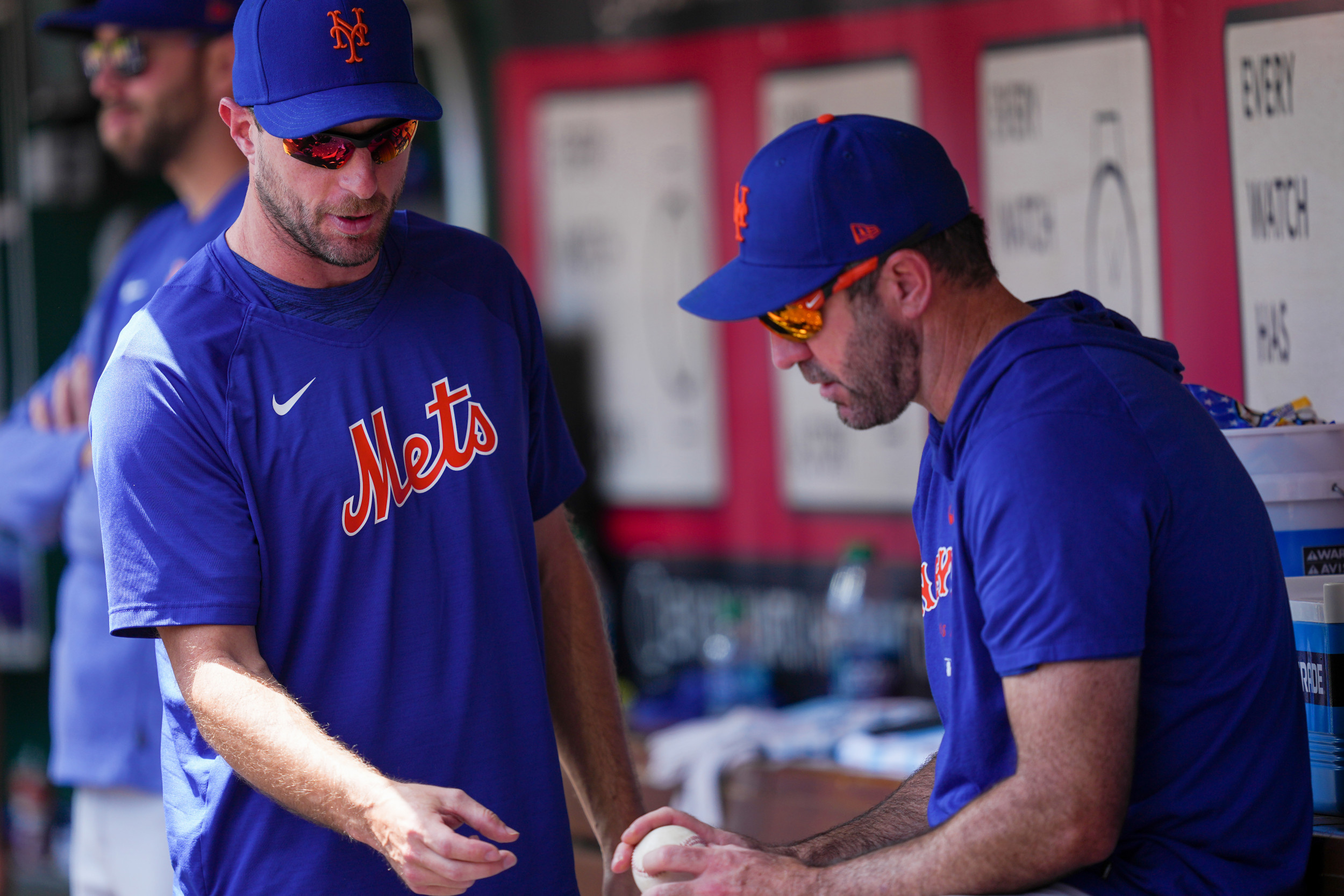In the final weeks of the 2024 election, former President Donald Trump has appeared to hold the spotlight.
Several election forecasters have begun to tip in the Republican presidential nominee's direction in recent weeks. While Vice President Kamala Harris continues to hold a slight lead in the popular vote, Electoral College models by FiveThirtyEight and Decision Desk HQ at The Hill favor Trump.
The former president's chance of victory in November has also jumped on betting platforms like Polymarket, a potential sign that Americans are preparing for a second Trump presidency. And after years of assailing mail-in ballots and other methods, the Republican National Committee's shift on early voting appears to be paying off, with GOP voters turning up in higher numbers in key swing states.
After weeks of Harris holding the momentum—particularly after her and Trump's first debate in September—the recent boosts for the GOP have been seen by some as a warning sign for Democrats.
Pollster Nate Silver wrote in his Silver Bulletin blog on Thursday that the shift is "not a good sign" for Harris so close to Election Day, and Trump's team has projected a message of confidence during the final days on the campaign trail.
"Even after the Democrats have spent over $200 million trying to redefine Kamala Harris, President Trump is winning or tied in every battleground because his message is resonating with voters across the country," RNC spokesperson Anna Kelly told Newsweek.

However, analysts told Newsweek there is not much to read in to the recent buzz surrounding Trump. Polling continues to show that the race for the White House is a neck-and-neck battle, and early voting numbers don't reflect the state of the race at this point in time.
"The public polling seems to be very stable. But the leaks and recent news cycle is pointing towards Trump momentum," Lee Hannah, a political science professor at Wright State University in Dayton, Ohio, told Newsweek.
"There's a few ways to interpret what is happening," Hannah added. One, Trump could "have momentum, and the campaigns and political insiders know this." The race could also be "a toss-up, but it benefits the Democrats to continue sounding the alarm to ensure that their voters turn out."
Another option? "It's really a toss-up, but Trump's confident message softens the ground for a 'stolen election' narrative that he's very likely to exploit if he loses," Hannah said.
D. Stephen Voss, a political science professor at the University of Kentucky, echoed that it's much too early to interpret the fluctuation in polling numbers leading up to November 5.
"It's best not to put too much stock in short-term fluctuations in polling or to try to attach meaning to them because they're mostly random noise," Voss told Newsweek.
Voss also raised issues with platforms like Polymarket, noting that while "[b]etting and investing on the presidential election used to be a fairly accurate predictor of how elections would turn out," the sites are too oversaturated now to be an indicator of how Election Day will go.
"The problem these days is that now everyone's watching those futures markets, so that movement in the markets generates valuable publicity for a candidate who pulls ahead," Voss said. "A few investors with deep pockets could sway those numbers not because they think they're making good bets, but instead because they want to make a candidate look deceptively strong."
The Wall Street Journal released a report last week that found that Polymarket's odds may have been "manipulated" by a small group of users to swing the bet toward Trump.
Voss added that caution needs to be taken before "putting too much emphasis on trends in early voting," noting that there is not "a comparable election against which to contrast this year's numbers."
While the COVID-19 pandemic led to an increase in mail-in ballots in 2020, Republicans have historically turned out in less numbers for early voting than Democrats.
Trump's misinformation around early voting four years ago also affected who went to the polls, but this year, the RNC encouraged its supporters to turn in a ballot in any way they could, meaning it is not a shock that polls are seeing an increase in GOP voting in the weeks before November 5.
"The only thing we really know about who will win the presidential election is that the data are not telling us who will win," Voss said.
Political analyst and pollster Evan Roth Smith said on Thursday during an appearance on Bloomberg TV that the current polling trend does not necessarily mean all hope is lost for Harris.
"I think the odds of an error in this election likely is a polling error in favor of Vice President Kamala Harris," Smith said, adding, "Polling is good at establishing what a given electorate is going to do. It's not always so good at picking up on changes in the electorate, like the kind of high turnout you get from Black voters when there's a Black candidate on offer."




















 English (US) ·
English (US) ·